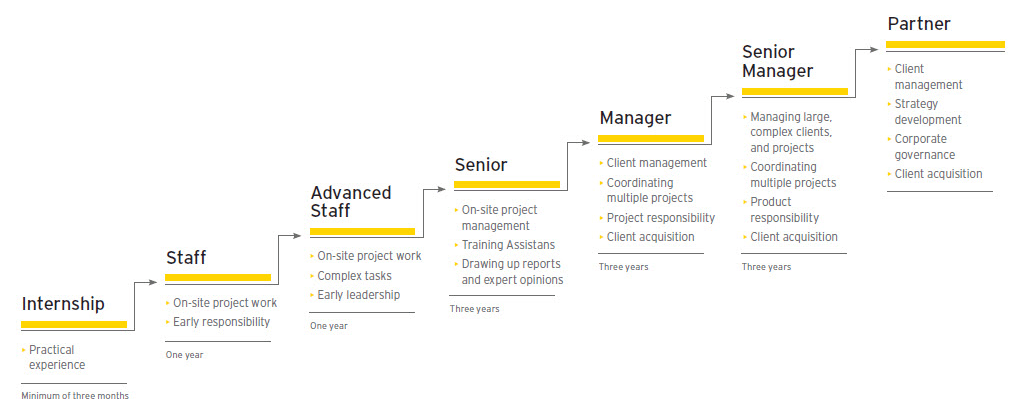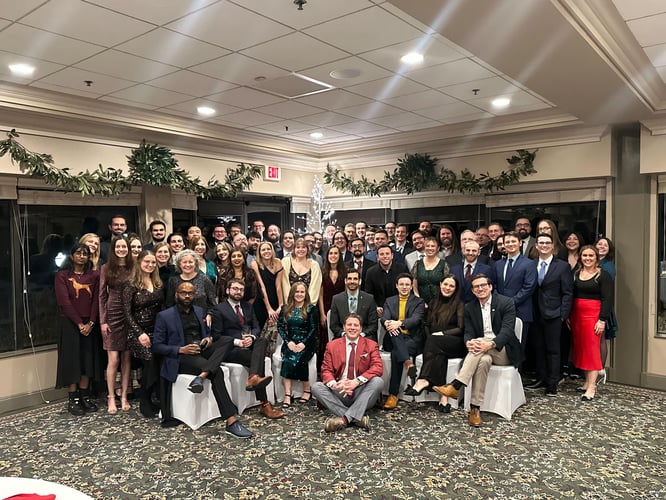Though the venture capital industry is known for handing out the big bucks to — hopefully — promising start-ups, the industry is less known for their other responsibilities: advocating, strategy development, accounting support, financial modeling, hiring/recruiting, and everything else it takes to move an innovative company out of the fledgling stage.
As VCs, we almost always see these other “auxiliary” duties as more vital and important to the success and wellbeing of our portfolio companies than a check. Central to the wellbeing of our portfolio companies is a quality founding team working to achieve key milestones.
While many startups aren’t actively hiring or aren’t hiring as rapidly as they used to be, many startups are still looking to grow and find people to join their teams — and stay on their teams.
No matter the climate, attracting quality candidates to a startup has become increasingly hard. Supply of good employees has waned and competition to attract all-stars candidates is stiff as a result of an increased demand for higher pay and flexibility.
So then, how do VCs find stellar talent for their stellar portfolio companies? How do VCs help startup leaders find talent? VentureNext has teamed up with Purpose Jobs to tackle this issue head on.
How to hire good quality candidates for your portfolio companies

When to hire versus bringing on efficiency solutions
In today’s environment where everyone is addicted to short form entertainment content (I’m looking at you TikTok) and the immediate gratification of an online Prime order, hitting the easy button in the hiring process can be tantalizing. However, like a plan to get rich quick, few things that seem too good to be true actually pan out.
Hiring is a tremendous investment in that person and your portfolio company. Before you contemplate a new hire, take a moment to think about your long-term needs and whether an efficiency solution (ex. an ERP or CRM) is a better fit.
Job postings
Where should I post?
When posting for a key hire, utilize all your resources, but know that some job boards have different goals in mind. For example, job boards like Indeed, Monster, LinkedIn, and other far reaching platforms will probably bring in a slew of applicants, but they may not be as high-quality candidates as you hope for. Other job communities, like Purpose Jobs for example, may not bring in the most candidates, but the ones you’ll come across are high-quality and usually have startup and tech experience.
One of the best ways to spread the word about an open position is by tapping into your network. A quick Google search would tell you that 70-85% of jobs are secured via networking with the majority of jobs going unpublished to job boards, and that’s for good reason. Where does your network find you? Post your job there.
What should the job title be?
Purpose Jobs recommends that companies A/B test job titles. The wording you use can attract — or deter — certain people, so it’s important to test out what works and what doesn’t.
Avoid ‘cool’ titles like Chief Do Gooder. Candidates don’t know what that means and it doesn’t translate well on a resume. Nothing needs to be boring, but the area of focus, seniority, and importance should come across.
For example, test out “Senior” vs “Lead” vs “Manager,” or “Content Writer” vs “Marketing Writer”. Consider your ideal candidate and think about what will make that person excited to work at your company.
What are the responsibilities?
While rudimentary, it’s crucial to spell out job responsibilities. Even more so, show how your candidates will grow and develop in their new role overtime. What they’re doing in month one will look different than month four and beyond.

Image from SHRM
What is the culture?
Defining culture is a difficult endeavor, but the best answer you’ll find will take you back to grade school: show, don’t tell. Saying, “we’re open, relaxed, flexible” is not as powerful as saying, “you own your schedule, so if you need to take a break in the middle of the afternoon to pick your kids up from school, that’s cool by us.” Saying, “we value feedback” isn’t as powerful as saying, “everyone has a seat at the table, literally. We have open forums for feedback and no one takes it personally. If you do, this isn’t the team for you.”
There’s more where this came from… For more information and resources on startup hiring, stay tuned for part two!
About the Authors
Marcus Fields and Allison Murdock are members of VentureNext, a professional peer group of rising venture capital investors who work with, manage, and run venture capital investment funds. VentureNext members are based across the country and united by an interest in investing in Midwestern companies. VentureNext members get access to monthly deal-flow calls, exclusive networking events, educational resources, and mentorship.
.jpg?width=250&height=250&name=VentureNext%20headshot%20(2).jpg) Marcus Fields is an Associate at RC Capital. He primarily works in his firm’s medtech practice which invests capital into growing medical device companies looking to expand its commercial footprint. Marcus has been pivotal in investing capital into several high-growth, high-tech companies to-date including Q’Apel Medical, Checkpoint Surgical, Standard Bariatrics, and SPR Therapeutics.
Marcus Fields is an Associate at RC Capital. He primarily works in his firm’s medtech practice which invests capital into growing medical device companies looking to expand its commercial footprint. Marcus has been pivotal in investing capital into several high-growth, high-tech companies to-date including Q’Apel Medical, Checkpoint Surgical, Standard Bariatrics, and SPR Therapeutics.
.jpg?width=250&height=250&name=VentureNext%20headshot%20(1).jpg) Allison Murdock is an investor at ID Ventures. Allison manages the fund’s pipeline, develops relationships with entrepreneurs, and leads due diligence on promising investment opportunities. Allison also leads the team’s FAM (Funding, Access and Mentorship) Program which supports underrepresented founders and founding teams of Michigan-based startups in the post-idea to early-MVP stage.
Allison Murdock is an investor at ID Ventures. Allison manages the fund’s pipeline, develops relationships with entrepreneurs, and leads due diligence on promising investment opportunities. Allison also leads the team’s FAM (Funding, Access and Mentorship) Program which supports underrepresented founders and founding teams of Michigan-based startups in the post-idea to early-MVP stage.





.png?width=50&name=Erin%20Gregory%20(1).png)

